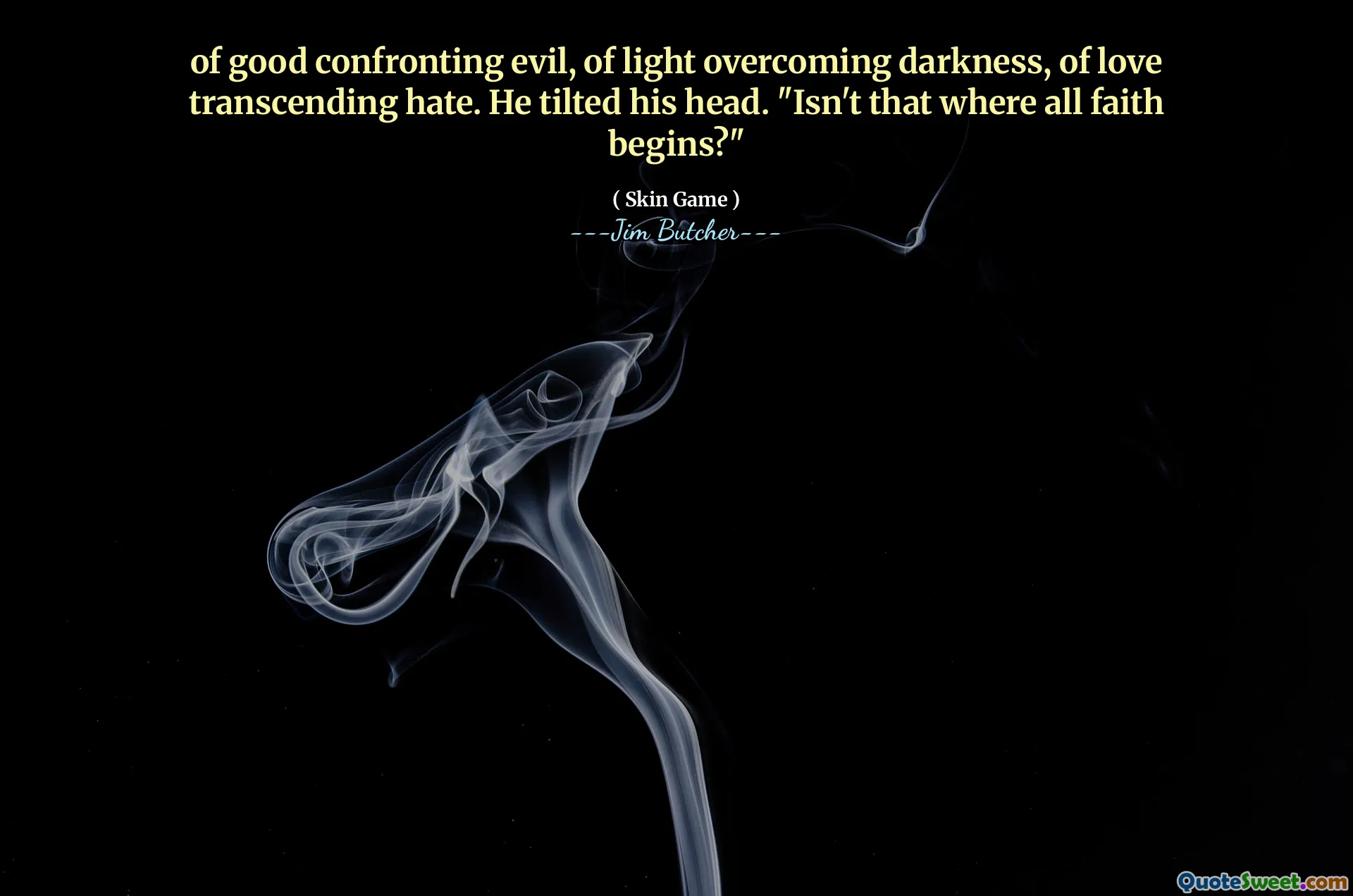
of good confronting evil, of light overcoming darkness, of love transcending hate. He tilted his head. "Isn't that where all faith begins?"
The quote explores the fundamental essence of faith built upon the perpetual struggle between opposing forces—good versus evil, light versus darkness, love versus hate. It emphasizes that belief often ignites when individuals witness or experience these battles, trusting in the eventual triumph of goodness and love even amidst adversity. In the context of the quote, there is an acknowledgment that faith isn't merely about blind trust but is rooted in the recognition of these dualities and the hope that one side can prevail. This sentiment resonates deeply with many spiritual and philosophical traditions, which see hope and belief as born out of witnessing or believing in the possibility of overcoming darkness thorough acts of compassion, courage, and integrity. The rhetorical question posed invites reflection on the genesis of faith itself—does it start when we confront the darker aspects of the world and choose to believe in the power of the light? It underscores that faith is often a conscious act of optimism, a declaration that love and goodness are worth striving for despite the presence of hate and evil. Moreover, this perspective encourages us to see struggles and conflicts not just as threats but as catalysts for belief and moral conviction. Faith, in this view, becomes a vital part of the human condition, guiding us to see beyond immediate darkness toward the potential for redemption and goodness. In essence, the quote champions the idea that our deepest faith is rooted in the ongoing battle between conflicting forces, and it is within this struggle that hope and conviction are born.










